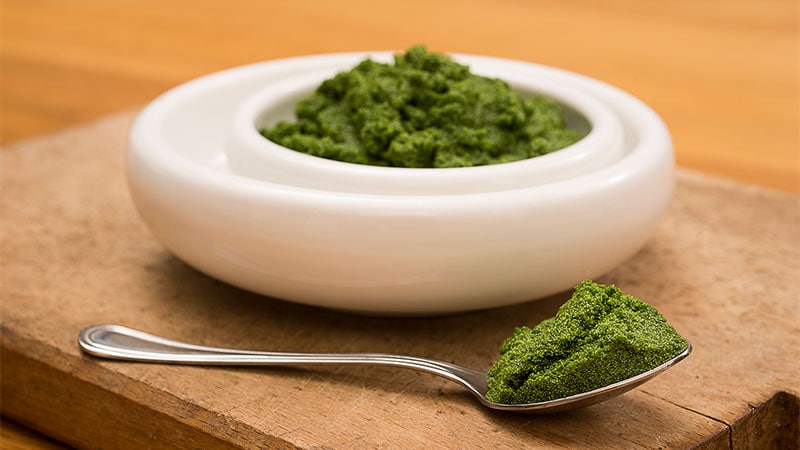מושגי ליבה
Green Mediterranean diet reduces aortic stiffness significantly.
תקציר
The content discusses how a modified green Mediterranean diet can improve proximal aortic stiffness (PAS), a marker of vascular aging and cardiovascular risk. The study compared the effects of the green Mediterranean diet, traditional Mediterranean diet, and a healthy dietary guideline-based diet on PAS reduction over 18 months. Results showed that the green Mediterranean diet led to the most significant reduction in PAS, highlighting its potential benefits for vascular health.
התאם אישית סיכום
כתוב מחדש עם AI
צור ציטוטים
תרגם מקור
לשפה אחרת
צור מפת חשיבה
מתוכן המקור
עבור למקור
www.medscape.com
Green Mediterranean Diet May Relieve Aortic Stiffness
סטטיסטיקה
The green Mediterranean diet regressed PAS by 15%.
Traditional Mediterranean diet regressed PAS by 7.3%.
Healthy dietary guideline-based diet regressed PAS by 4.8%.
ציטוטים
"The greener Mediterranean diet seemed to be the best one on the surrogate marker of MRI-defined aortic stiffness." - Deepak L. Bhatt
תובנות מפתח מזוקקות מ:
by Megan Brooks ב- www.medscape.com 04-18-2023
https://www.medscape.com/viewarticle/990938
שאלות מעמיקות
How can the findings of this study impact dietary recommendations for cardiovascular health?
The findings of this study suggest that adopting a green Mediterranean diet, rich in dietary polyphenols and low in red or processed meat, can lead to significant improvements in proximal aortic stiffness (PAS), a marker of vascular aging and cardiovascular risk. These results could influence dietary recommendations for cardiovascular health by emphasizing the importance of incorporating more plant-based foods, whole grains, and polyphenol-rich sources into one's diet. Health professionals may consider recommending a green Mediterranean diet as a potential strategy to reduce cardiovascular risk factors and improve vascular health.
What are potential limitations or criticisms of the green Mediterranean diet approach?
While the green Mediterranean diet showed promising results in reducing PAS and improving vascular health, there are potential limitations and criticisms to consider. One criticism could be the generalizability of the findings, as the study sample primarily consisted of participants with abdominal obesity and dyslipidemia. Additionally, the study was relatively small in size, and the analysis was exploratory and post hoc, which may introduce bias or confounding factors. Another limitation could be the sustainability and feasibility of long-term adherence to a green Mediterranean diet for individuals with different cultural or dietary preferences. Further research is needed to validate the long-term effectiveness and potential drawbacks of this dietary approach.
How can the concept of dietary impact on vascular aging be further explored in research?
To further explore the concept of dietary impact on vascular aging, future research studies could focus on larger and more diverse populations to enhance the generalizability of the findings. Longitudinal studies with extended follow-up periods could provide insights into the sustained effects of different dietary patterns on vascular health and aging. Mechanistic studies investigating the specific bioactive compounds in plant-based foods that contribute to vascular health could help elucidate the underlying pathways involved. Additionally, randomized controlled trials comparing the green Mediterranean diet with other dietary interventions or standard recommendations could provide more robust evidence on the effectiveness of this approach in preventing cardiovascular diseases and reducing vascular aging. Collaborative efforts between researchers, clinicians, and nutritionists may also be beneficial in designing comprehensive dietary strategies for improving vascular health and reducing cardiovascular risk.
0
